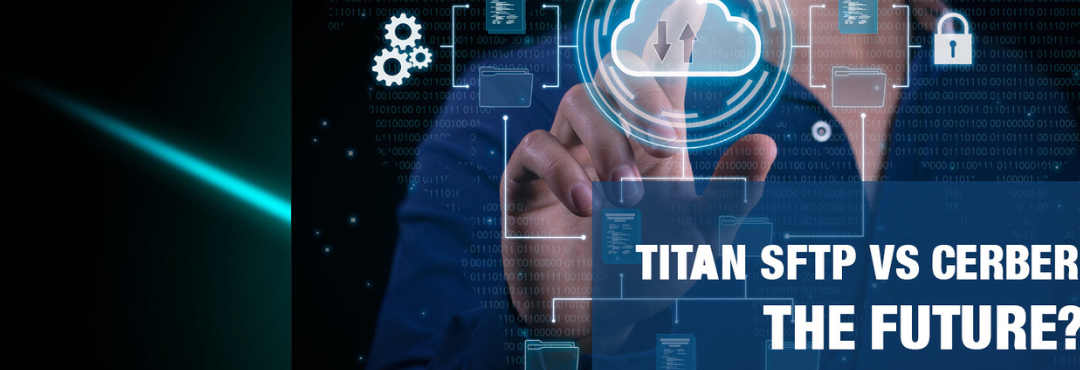Introduction
Managed File Transfer (MFT) is a secure, scalable solution for transferring sensitive files between systems, users, and organizations. Unlike outdated protocols like FTP, MFT platforms ensure encryption, compliance, and automation — all essential for modern IT environments.
In this article, we’ll break down:
What Is Managed File Transfer (MFT)?
MFT stands for Managed File Transfer — a technology that automates, secures, and monitors file transfers across internal systems and external partners. MFT solutions are designed to meet data compliance requirements (like HIPAA, GDPR, SOX) and ensure operational resilience.
Key Features:
- Encryption: Secure protocols like SFTP, FTPS, HTTPS
- Automation: Schedule, trigger, and route transfers
- Visibility: Logs, dashboards, and real-time alerts
- Compliance: Support for government and industry standards
MFT vs SFTP: What’s the Difference?
| Feature | MFT | SFTP |
|---|---|---|
| Encryption | ✔ Yes | ✔ Yes |
| Automation | ✔ Built-in | ✘ Manual scripting |
| Compliance Tools | ✔ Audit trails, reports | ✘ Basic only |
| User Management | ✔ Role-based access | ✘ Limited |
| Scalability | ✔ Enterprise-ready | ✘ Limited flexibility |
Bottom Line: While SFTP secures individual transfers, MFT secures the entire transfer process — from initiation to confirmation — with built-in intelligence and governance.
Why Secure File Transfer Matters More Than Ever
Data breaches and compliance violations are costly. Secure file transfer systems ensure:
- End-to-end encryption
- Automated policy enforcement
- Data integrity validation
- Audit logging for accountability
Did you know?
Businesses that switch from FTP to MFT reduce operational risks and gain more control over file activity.
What Is Cloud-Based Integration in File Transfer?
Cloud-based integration connects your on-prem and cloud systems for seamless data flow. In the context of MFT, this means enabling:
- Hybrid deployments
- Cloud-native scalability
- Access to SaaS, IaaS, and PaaS services
South River Technologies’ Titan MFT Server offers flexible deployment options — including cloud, on-premises, and hybrid environments — to fit your existing infrastructure.
When to Choose Managed File Transfer (MFT)
Choose MFT if your organization needs to:
- Transfer sensitive files securely
- Maintain compliance with industry regulations
- Integrate cloud and on-premises applications
- Automate repetitive file workflows
- Reduce reliance on legacy FTP servers
How to Set Up a Secure Managed File Transfer Process
Here’s how to securely implement MFT in your organization:
- Assess your file transfer needs
Identify internal and external data flows, compliance needs, and automation opportunities. - Choose an MFT platform
Select a vendor like Titan MFT Server that supports encryption, reporting, and flexible deployment. - Configure security settings
Enable SFTP/FTPS, user authentication, access controls, and audit logging. - Set up automation
Define triggers and schedules for recurring or event-based transfers.
Conclusion
Managed File Transfer (MFT) is essential for organizations that require secure, automated, and compliant file movement. Unlike FTP or even SFTP alone, MFT platforms provide a full suite of tools to protect sensitive data and ensure operational efficiency.
Want to see it in action?
Explore Titan MFT Server — South River Technologies’ secure, scalable platform for cloud and enterprise file transfers.
FAQs About MFT and Secure File Transfers
What is the difference between MFT and FTP?
FTP is a basic file transfer protocol that lacks security and automation. MFT adds encryption, compliance features, automation, and monitoring to ensure secure, enterprise-level file transfers.
Is MFT more secure than SFTP?
Yes. While SFTP secures individual transfers, MFT secures the entire file transfer lifecycle, including automation, logging, and policy enforcement.
Can MFT be used in the cloud?
Absolutely. Modern MFT solutions like Titan MFT Server offer cloud-based, on-prem, and hybrid deployments for flexible integration with any IT environment.
Who uses managed file transfer?
Enterprises in healthcare, finance, government, and logistics use MFT to ensure secure, compliant, and reliable data exchanges across systems and partners.







